
Kirkuk: The Heart of Ancient Mesopotamia
Kirkuk is a city that offers a rich tapestry of history and culture. Located in northern Iraq, it is one of the oldest continuously inhabited cities in the world. The city is a melting pot of different ethnic groups, including Kurds, Arabs, Turkmen, and Assyrians, each contributing to its vibrant culture and traditions. A visit to Kirkuk would not be complete without exploring the ancient citadel, which stands as a testament to the city's long and storied past. The citadel offers panoramic views of the city and is an excellent spot for photography. Another must-visit site is the Qishla of Kirkuk, an Ottoman-era fort that provides a glimpse into the city's more recent history. For those interested in religious architecture, the Grand Mosque and the Church of the Virgin Mary are both worth a visit. These sites highlight the city's religious diversity and architectural beauty. Don't miss the opportunity to stroll through the local markets where you can find traditional crafts, spices, and delicious local cuisine. Kirkuk is also known for its natural beauty. The nearby Baba Gurgur oil field contains the Eternal Fire, a natural gas flame that has been burning for thousands of years. This unique phenomenon is fascinating to witness and adds another layer to the city's allure.
Local tips in Kirkuk
- Visit the citadel early in the morning to avoid crowds and enjoy the best lighting for photos.
- Dress modestly and respectfully, especially when visiting religious sites.
- Hire a local guide to get the most out of your visit to historical sites.
- Try traditional dishes like kebabs and dolma at local restaurants.
- Be mindful of security advisories and plan your visit accordingly.
Kirkuk: The Heart of Ancient Mesopotamia
Kirkuk is a city that offers a rich tapestry of history and culture. Located in northern Iraq, it is one of the oldest continuously inhabited cities in the world. The city is a melting pot of different ethnic groups, including Kurds, Arabs, Turkmen, and Assyrians, each contributing to its vibrant culture and traditions. A visit to Kirkuk would not be complete without exploring the ancient citadel, which stands as a testament to the city's long and storied past. The citadel offers panoramic views of the city and is an excellent spot for photography. Another must-visit site is the Qishla of Kirkuk, an Ottoman-era fort that provides a glimpse into the city's more recent history. For those interested in religious architecture, the Grand Mosque and the Church of the Virgin Mary are both worth a visit. These sites highlight the city's religious diversity and architectural beauty. Don't miss the opportunity to stroll through the local markets where you can find traditional crafts, spices, and delicious local cuisine. Kirkuk is also known for its natural beauty. The nearby Baba Gurgur oil field contains the Eternal Fire, a natural gas flame that has been burning for thousands of years. This unique phenomenon is fascinating to witness and adds another layer to the city's allure.
When is the best time to go to Kirkuk?
Iconic landmarks you can’t miss
Kirkuk Citadel
Discover the rich history and breathtaking views of Kirkuk Citadel, a stunning fortress that reflects the cultural heritage of Iraq.
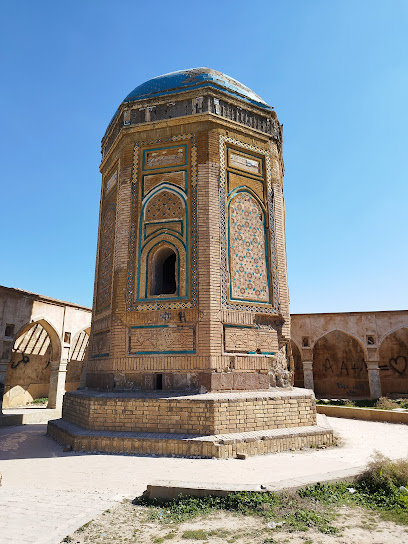
Media tourist restaurant
Experience authentic Iraqi flavors in a stunning setting at Media Tourist Restaurant, Kirkuk's premier dining destination.
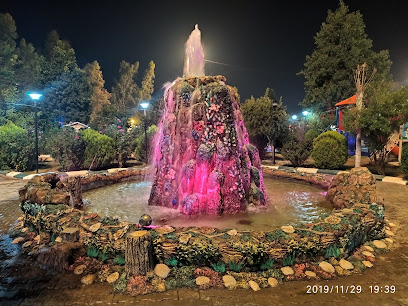
SAMAD Restaurant
Experience authentic Iraqi cuisine at SAMAD Restaurant in Kirkuk, where every meal tells a story of tradition and flavor.
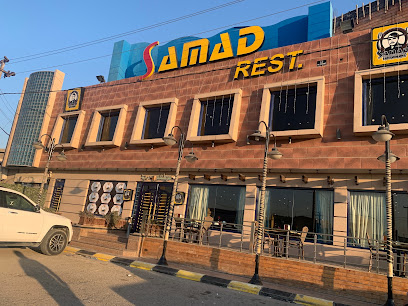
Smileland Park
Experience thrilling rides, fun games, and beautiful scenery at Smileland Park, Kirkuk's ultimate destination for family entertainment and adventure.
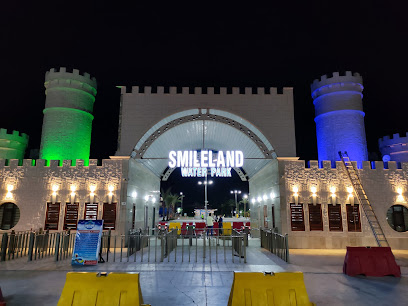
Babe Gûrgûr Amusement Park پارکی بابا گوڕگوڕ
Experience thrills and family fun at Babe Gûrgûr Amusement Park in Kirkuk, with rides, games, and attractions for all ages!
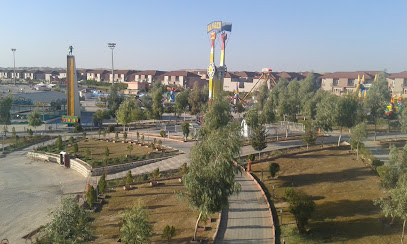
Kirkuk Kishla
Explore Kirkuk Kishla, a historic Ottoman barrack turned archaeological museum, showcasing the diverse heritage of Kirkuk and its ancient civilizations.
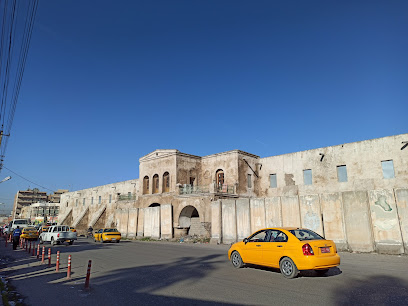
MARS Coffee House 2
Experience unique coffee blends and a cozy atmosphere at MARS Coffee House 2 in Kirkuk, a perfect spot for relaxation and local culture.
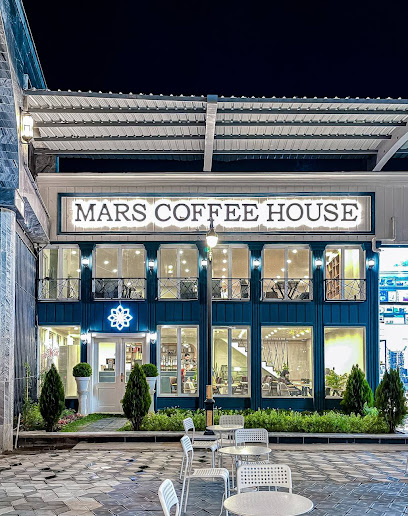
ديوان محافظة كركوك
Explore the Diwan of Kirkuk Governorate, a cultural landmark symbolizing the city's rich heritage and vibrant community. A must-see destination!
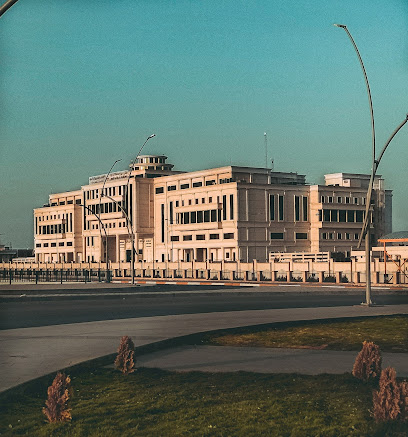
Bahktyari Mosque
Discover the Bahktyari Mosque in Kirkuk, a serene symbol of Islamic heritage and architectural beauty in the heart of Iraq.

النار الازلية
Witness the Eternal Fire of Kirkuk, a historical landmark where flames have burned for millennia, captivating visitors with its timeless allure.
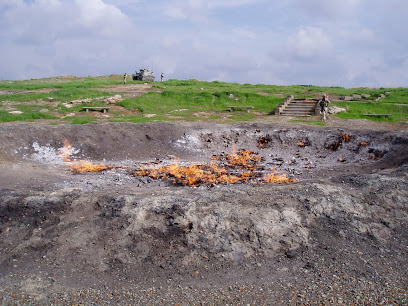
Landmarkkirkuk
Explore unique clothing styles and traditional garments at Landmarkkirkuk, the heart of Kirkuk's vibrant fashion scene.

Tell al-Fakhar
Unearth the secrets of Tell al-Fakhar, an ancient Mesopotamian settlement in Kirkuk, revealing millennia of history and culture.

LANDMARKKIRKUK
Explore the vibrant fashion offerings at Landmark Kirkuk, where traditional styles meet modern trends in a unique shopping experience.

Tayaran Roundabout
Experience the vibrant heart of Kirkuk at Tayaran Roundabout, a bustling hub of culture, cuisine, and community life.
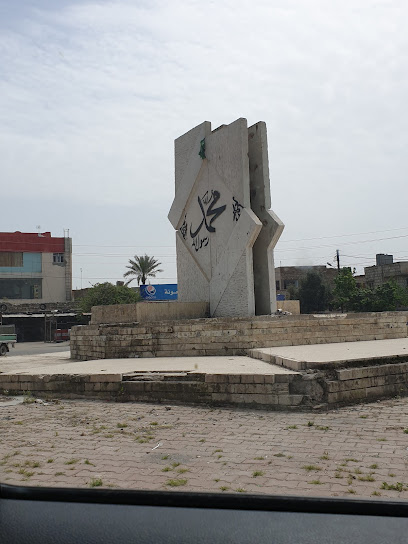
Qalaqut قەلاقوت
Discover Qalaqut: A historical landmark in Kirkuk, reflecting centuries of cultural heritage and ancient architecture.
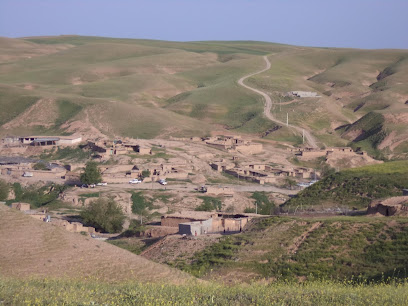
Unmissable attractions to see
Kirkuk Citadel
Explore the ancient Kirkuk Citadel, a historic fortress with millennia of stories etched in its walls, offering a glimpse into Iraq's rich heritage.
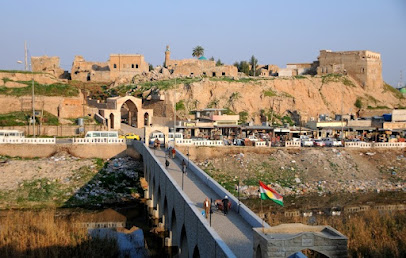
Kirkuk Park باخچەی کەرکووک
Escape to Kirkuk Park: A tranquil green space in Kirkuk offering gardens, walking paths, and a vibrant cultural atmosphere for locals and tourists.
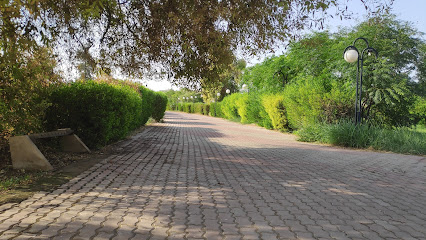
Al-Omal Square گۆڕەپانی کرێکاران
Escape the city bustle at Al-Omal Square in Kirkuk, a vibrant green space for relaxation, culture, and community connection.
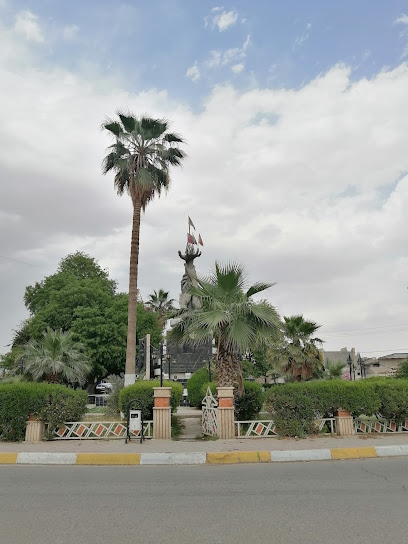
Smileland Park
Experience thrilling rides and family fun at Smileland Park in Kirkuk, a perfect destination for a memorable day out!
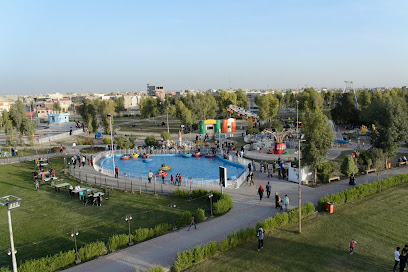
Babe Gûrgûr Amusement Park پارکی بابا گوڕگوڕ
Escape the city bustle at Babe Gûrgûr Amusement Park in Kirkuk, offering rides and green spaces for family fun and relaxation.
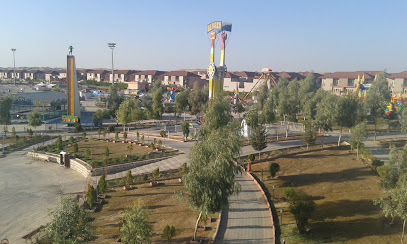
Vasiti parkı باخچەی برایەتی
Find tranquility in Kirkuk's green heart: Vasiti Park offers a peaceful escape with lush landscapes and a serene atmosphere for relaxation.
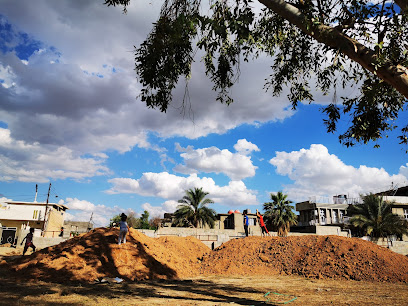
Musalla Parki باخچەی موسەڵا
Escape to Kirkuk's Musalla Park: A green haven with serene pathways, vibrant flora, and a tranquil atmosphere for relaxation and social gatherings.
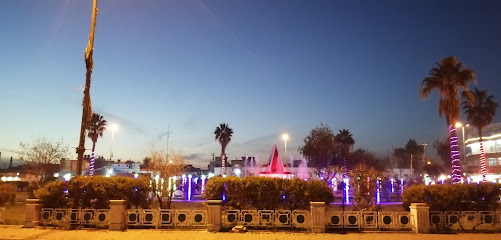
Kirkuk Kishla
Explore Kirkuk Kishla: A journey through time in a historic Ottoman barrack, now a captivating archaeological museum.
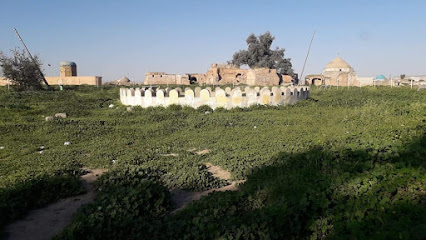
Military Park
Explore the natural beauty and historical significance of Military Park in Kirkuk, a peaceful retreat in the heart of the city.
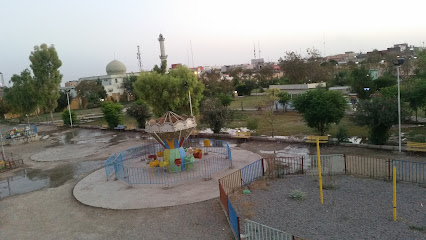
Eski Tisin Parkı
Escape to Eski Tisin Parkı in Kirkuk for relaxation, picnics, and enjoying the beauty of nature in a tranquil setting.
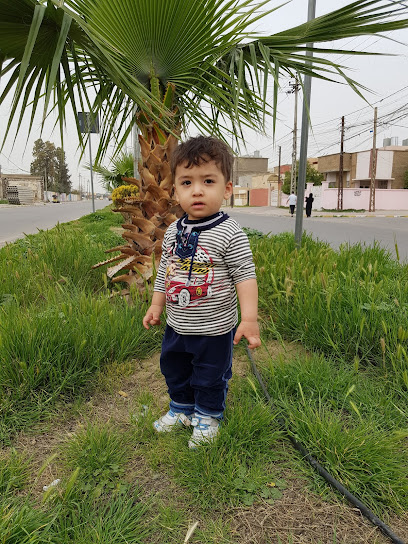
باخچەی گەڕەکی مامۆستایان / حديقة حي العلماء
Discover the tranquil beauty of Baqchi Gawaki Mamastaya Park in Kirkuk, a perfect getaway for relaxation amidst nature and local culture.
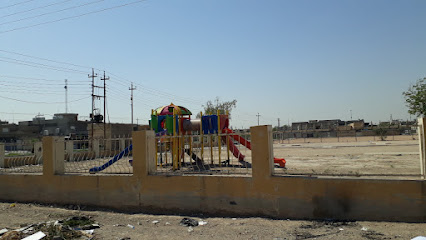
فلکەی الله اکبر / فلكة الله اكبر
Discover the serene beauty of فلکی الله اکبر, a tranquil park in Kirkuk perfect for relaxation, picnics, and family gatherings amidst nature.
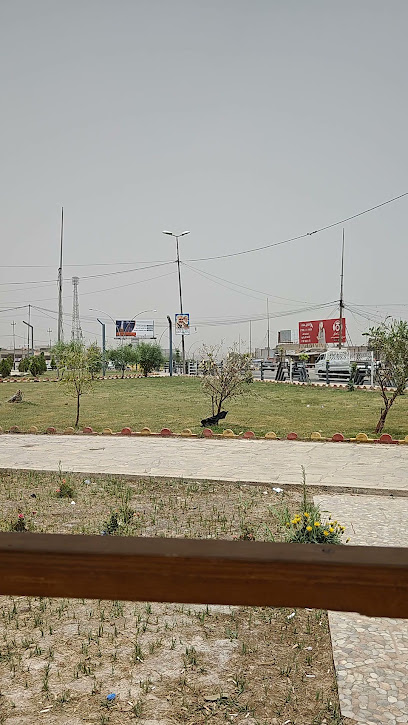
Nawroz Garden باخچەی نەورۆز
Escape to Nawroz Garden in Kirkuk: A serene park offering relaxation, picnics, and a touch of nature's beauty in the heart of the city.

حديقة ام الربيعين
Escape to حديقة ام الربيعين, a serene garden in Kirkuk offering tranquility, natural beauty, and a vibrant local atmosphere. Perfect for families and nature lovers.
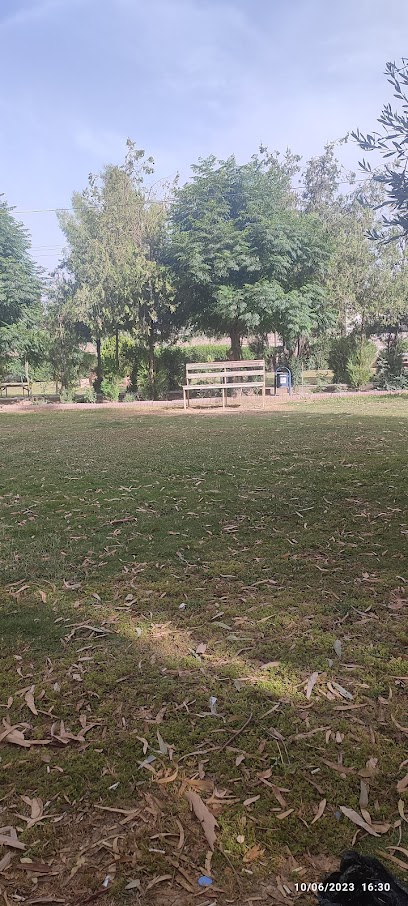
Green Park باخچەی سەوز
Escape to Green Park in Kirkuk for a refreshing retreat. Open daily, it's the perfect spot for relaxation and family fun in a green setting.
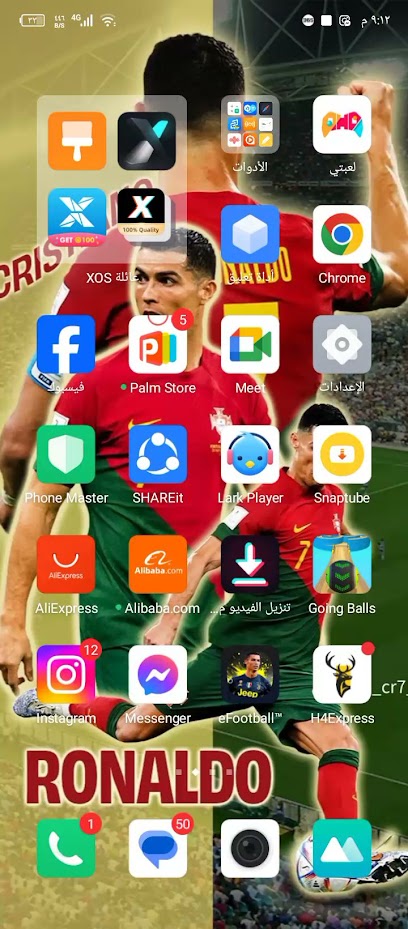
Essential places to dine
TODAY Rest & Cafe
Experience exquisite flavors at TODAY Rest & Cafe in Kirkuk - where local traditions meet international cuisine.
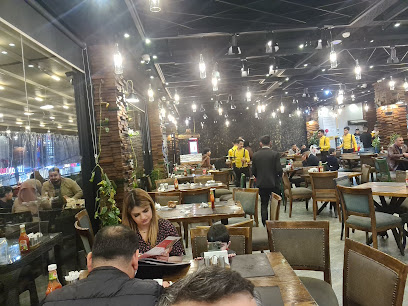
SAMAD Restaurant
Experience authentic Iraqi cuisine at SAMAD Restaurant in Kirkuk - where every meal tells a story of tradition and flavor.
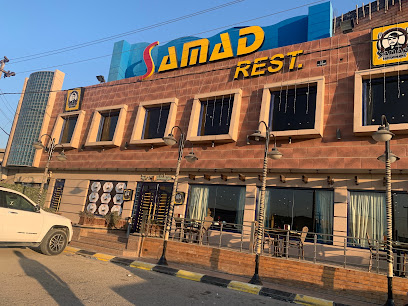
Abdullah Restaurant
Experience the rich flavors of Iraqi cuisine at Abdullah Restaurant in Sekanyan - where tradition meets taste in every bite.
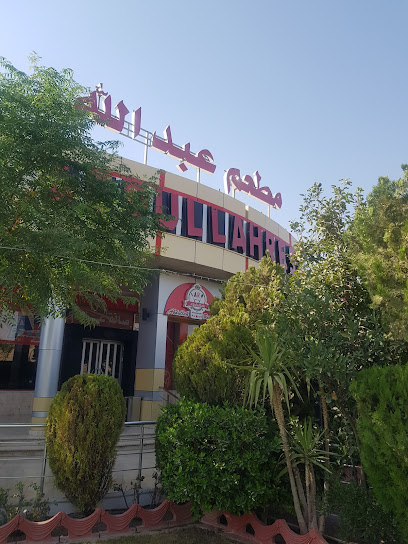
چێشتخانەی مەلا نوری / مطعم ملا نوري
Experience authentic Kurdish flavors at مطعم ملا نوري in Kirkuk - where tradition meets culinary excellence.
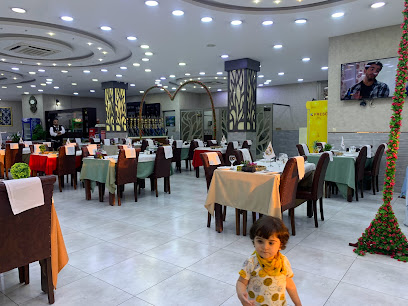
چێشتخانەی فاخیر / مطعم فاخر
Experience authentic Iraqi cuisine in a family-friendly atmosphere at چێشتخانەی فاخیر in Kirkuk.
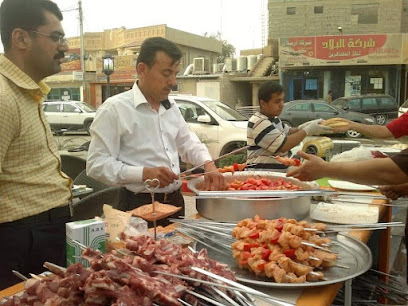
Spicy Restaurant
Experience fine dining at Spicy Restaurant in Kirkuk - where traditional flavors meet modern culinary artistry for an unforgettable meal.
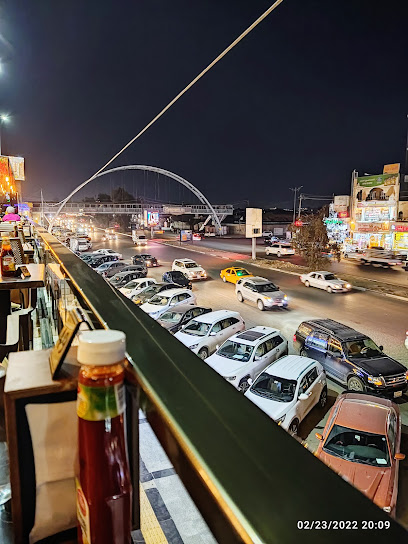
FireFly Burger Kirkuk
Experience delicious American burgers at FireFly Burger Kirkuk - where every bite feels like home.
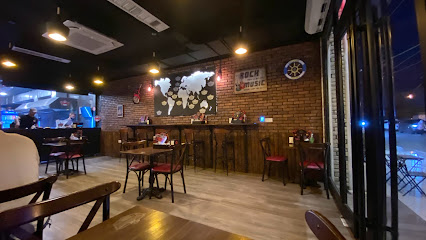
لي مكان - le makan
Experience authentic Iraqi flavors at لي مكان - le makan in Kirkuk; where every dish tells a story.
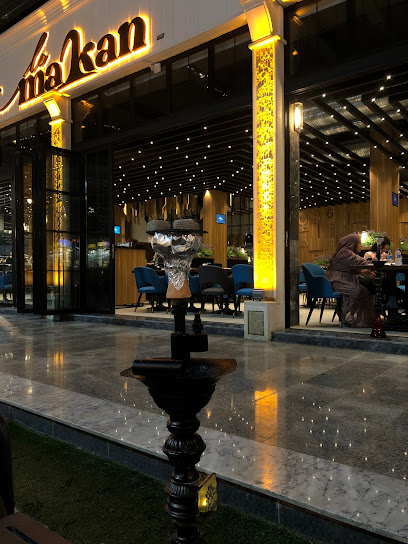
Lou'ai for Turkish BBQ
Experience authentic Turkish barbecue at Lou'ai in Kirkuk - where flavor meets tradition in every delicious bite.
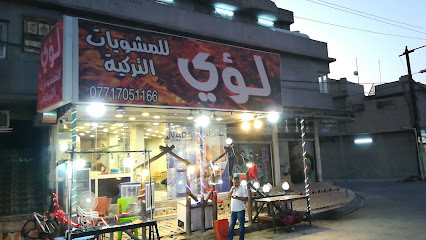
Best Fast Food
Discover delicious fast food in Rahimawa with diverse flavors perfect for travelers seeking quick bites while exploring Kirkuk Governorate.
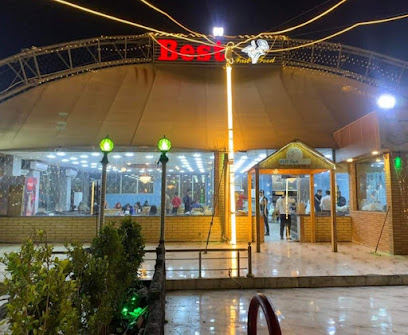
مطعم فريدون
Explore the authentic tastes of Iraq at مطعم فريدون in Kirkuk, where tradition meets flavor in every dish.
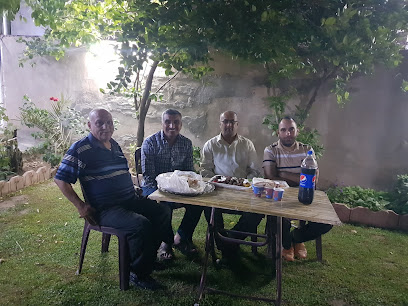
مأكولات عوافي
Discover delicious fast food at مأكولات عوافي in Kirkuk – where local flavors meet quick service for every traveler.
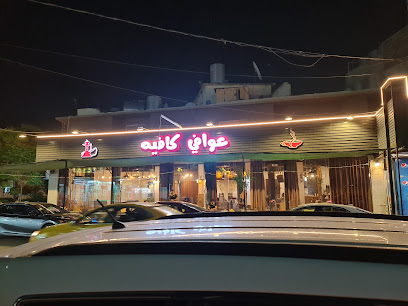
Restaurant Hama Nasser
Experience authentic Iraqi flavors at Restaurant Hama Nasser in Kirkuk – a culinary gem featuring traditional dishes in a welcoming atmosphere.
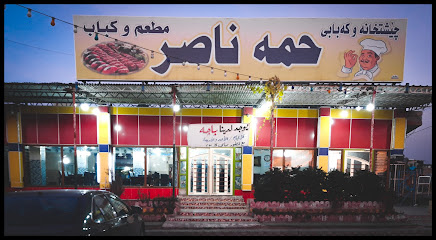
مطعم باب حسابات
Experience authentic Iraqi cuisine at مطعم باب حسابات in Kirkuk - where every dish tells a story of flavor and tradition.
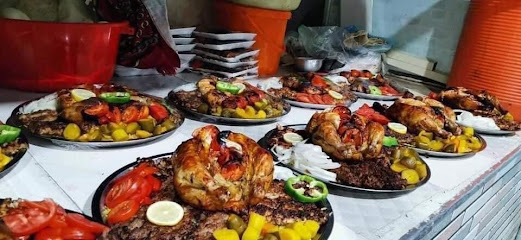
مطعم وكباب رازاوه
Savor authentic Iraqi cuisine at مطعم وكباب رازاوه in Kirkuk - where every meal tells a story of tradition and flavor.
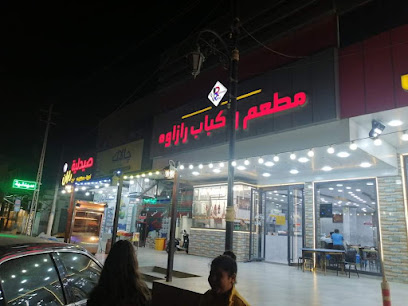
Markets, malls and hidden boutiques
L
Explore the latest fashion trends at L, the premier clothing store in Kirkuk, offering a wide variety of stylish options for every wardrobe.
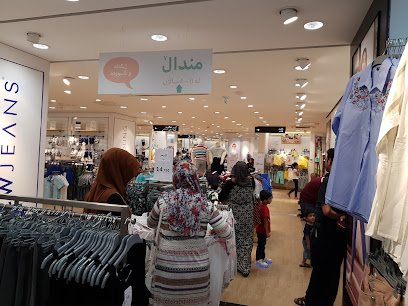
Mall of Kirkuk
Explore the Mall of Kirkuk, a modern shopping haven featuring diverse stores, delicious dining, and exciting entertainment in the heart of the city.
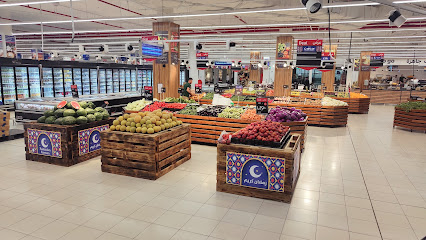
Mutawakkil home shopping
Experience local culture and flavors at Mutawakkil Home Shopping in Kirkuk, a vibrant supermarket offering a variety of products and a taste of community.
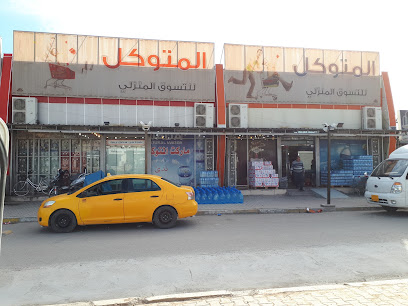
MaxiMall
Discover the latest fashion trends at MaxiMall in Kirkuk, a stylish dress store offering a diverse collection for every occasion.
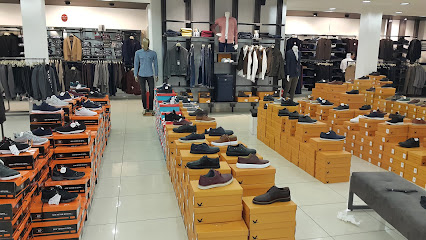
OudElite
Discover the essence of Iraq at OudElite, a premier perfume store in Kirkuk offering exquisite fragrances that reflect the region's rich heritage.
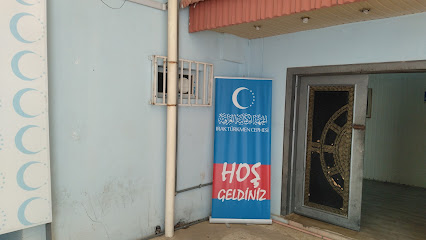
Kirkuk Mall 2
Discover the heart of Kirkuk at Kirkuk Mall 2, where local culture meets vibrant shopping in a unique supermarket experience.
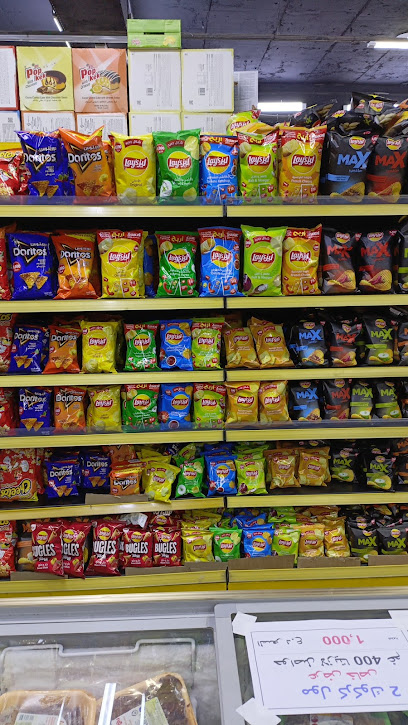
future home
Discover the essence of Kirkuk at Future Home, where local culture meets modern shopping in a vibrant and welcoming atmosphere.
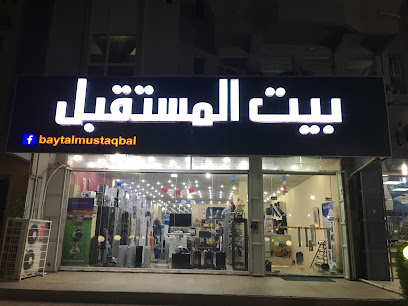
ankido انكيدو
Explore the finest men's fashion at Ankido, a stylish clothing store in Kirkuk showcasing local trends and high-quality apparel.
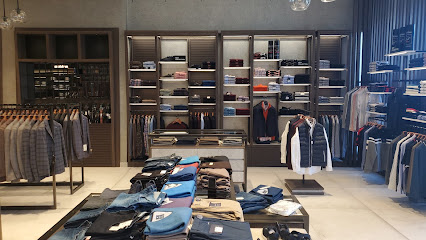
Zühre Kerkük
Discover contemporary fashion at Zühre Kerkük, a premier clothing store offering stylish apparel for both men and women in the heart of Kirkuk.
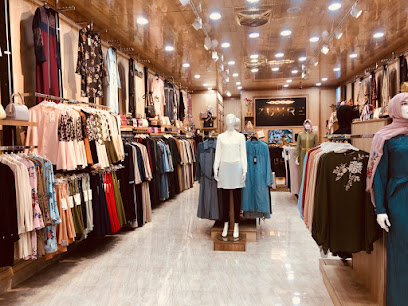
Sunshine Accessories Kirkuk
Explore Sunshine Accessories in Kirkuk for unique fashion finds and stylish gifts that showcase creativity and individuality.
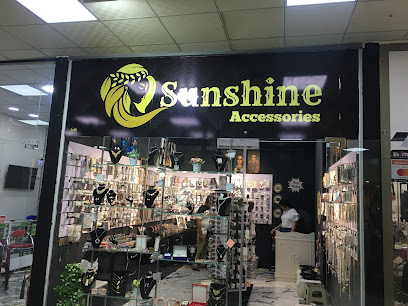
Sami Shop
Explore Sami Shop in Kirkuk, where local fashion meets cultural craftsmanship, providing unique clothing and souvenirs for every traveler.

MAXI MALL
Discover the essence of shopping in Kirkuk at MAXI MALL, where local culture meets modern fashion choices in a vibrant atmosphere.
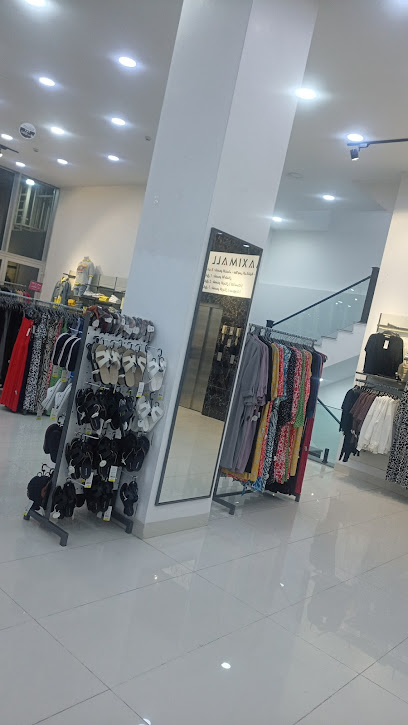
Trust shopping
Explore Trust Shopping in Kirkuk for a unique selection of home goods that reflect local culture and craftsmanship.
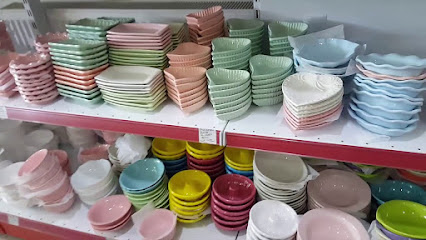
My gift store
Discover unique souvenirs and local crafts at My Gift Store, a charming gift shop in the heart of Kirkuk, reflecting the rich culture and artistry of the region.
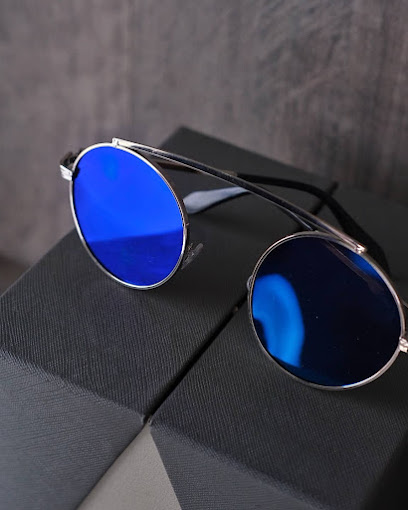
Shopping Shop
Discover unique fashion treasures at Shopping Shop in Kirkuk, where local craftsmanship meets contemporary style in a vibrant shopping atmosphere.
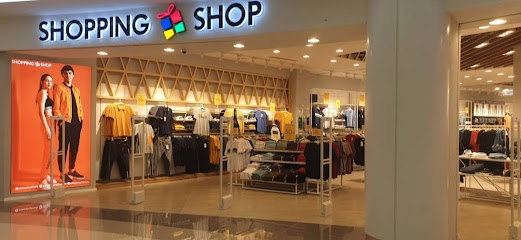
Essential bars & hidden hideouts
Gorgis Bar
Discover the charming Gorgis Bar in Kirkuk, where a delightful selection of wines awaits in a cozy and inviting atmosphere.
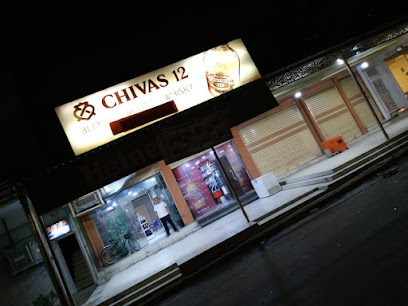
E7 Drinks
Discover the vibrant nightlife of Kirkuk at E7 Drinks, a lively bar offering a unique blend of local and international flavors.
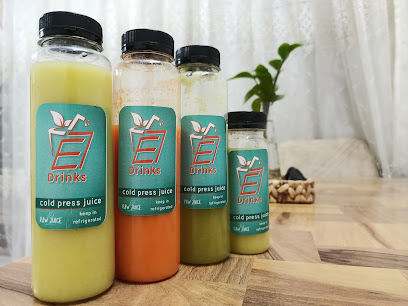
مجيد ابو العرك
Discover the vibrant cocktail scene at مجيد ابو العرك in Kirkuk, where local flavors meet classic mixology in a lively atmosphere.
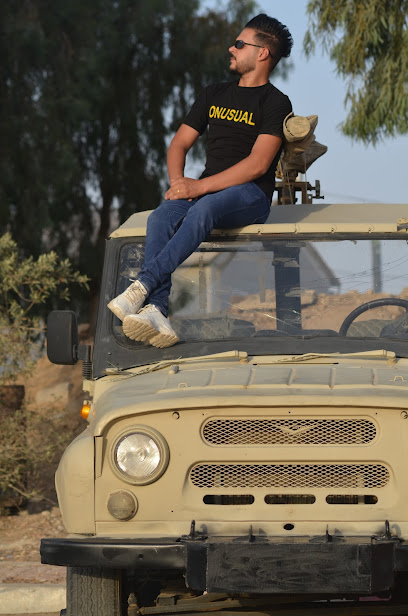
مامۆستایان
Immerse yourself in the lively ambiance of مامۆستایان Bar in Kirkuk, a perfect blend of local culture and vibrant nightlife.
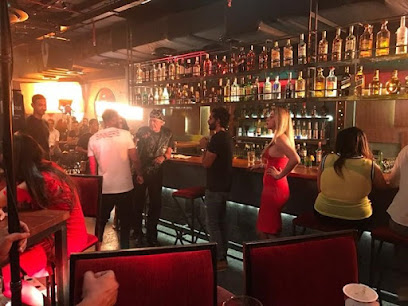
اسواق الفرات للمشروبات الكحولية
Discover the lively ambiance and diverse drink selection at Al-Furat Liquor Market in Kirkuk, a must-visit bar for tourists seeking local nightlife.

مشروب
Experience the vibrant nightlife of Kirkuk at مشروب, where local flavors and warm ambiance create unforgettable memories.

كركوك
Discover Kirkuk, a city rich in history and culture, where vibrant nightlife meets ancient heritage in the heart of Iraq.

مضيف چيس حب
Discover the lively atmosphere of مضيف چيس حب, a bar in Kirkuk where locals and tourists connect over drinks and music.

ماهر للمشروبات الكحولية
Experience the vibrant nightlife of Kirkuk at ماهر للمشروبات الكحولية, where great drinks and a lively atmosphere await.

اسواق نزار للمشروبات الكحولية
Discover the heart of Kirkuk's nightlife at اسواق نزار للمشروبات الكحولية, where a vibrant atmosphere meets an extensive drink selection.

بيت شيحان
Experience the vibrant nightlife of Kirkuk at بيت شيحان, where tradition meets modernity in a cozy bar atmosphere.

اسواق الماس للمشروبات الكحولية
Discover the lively spirit of Kirkuk at Almas Liquor Store, where diverse drinks meet a vibrant social scene.

أرض البوعجيل
Experience the lively culture and local flavors at أرض البوعجيل, a must-visit pub in Kirkuk, Iraq, perfect for unwinding and socializing.

كلينك الحجية لجلسات المساج والعناية بالبشرة
Indulge in relaxation and rejuvenation at كلينك الحجية لجلسات المساج والعناية بالبشرة, your oasis in the heart of Kirkuk.

Local Phrases
-
- Helloسڵاو
[slaw] - Goodbyeخداحافظ
[khuda hafiz] - Yesبەڵێ
[belle] - Noنەخێر
[nekher] - Please/You're welcomeتكایە
[tekaye] - Thank youسوپاس
[supas] - Excuse me/Sorryببورە
[babure] - How are you?چۆنییت؟
[choniit?] - Fine. And you?باشە. ئهوهی؟
[bashe. awei?] - Do you speak English?بە زمانی ئینگلیزی گوتیت؟
[be zamani inglizi gutit?] - I don't understandنازانم
[nazanam]
- Helloسڵاو
-
- I'd like to see the menu, pleaseدەتەوێ بەرنامە بنیشان بدەیت، تكایە
[deteoay bernama bnishan bdeyat, tekaye] - I don't eat meatمن گۆشت ناخۆم
[man gosht nakhome] - Cheers!بهخهی
[bexey] - I would like to pay, pleaseدەتەوێ پارە بدەم، تكایە
[deteoay pare bdem, tekaye]
- I'd like to see the menu, pleaseدەتەوێ بەرنامە بنیشان بدەیت، تكایە
-
- Help!یارمەتی!
[yarmeti!] - Go away!دەرەوە!
[derewe!] - Call the Police!پۆلیس بپەخشە!
[police bpekhshe!] - Call a doctor!دۆکتۆر بپەخشە!
[doctor bpekhshe!] - I'm lostمن گمكردم
[man gomkrdm] - I'm illمن تندروستم
[man tandroostm]
- Help!یارمەتی!
-
- I'd like to buy...دەتەوێ خرید بکەم...
[deteoay khreed bkem...] - I'm just lookingمن تەنها دەگەڕێنم
[man tenha degernam] - How much is it?چندە؟
[chande?] - That's too expensiveئەوەی زۆر گرانە
[awei zor grane] - Can you lower the price?دەتوانی قەیمەت کەم بکەیت؟
[detwani qaymate kem bkeiyat?]
- I'd like to buy...دەتەوێ خرید بکەم...
-
- What time is it?چۆنی ڕێکە؟
[choni reke?] - It's one o'clockیەکەیەکەیەک
[yekayeka] - Half past (10)نیمی دەیەکەم
[nimi dayekam] - Morningبەهار
[bahar] - Afternoonپاشنهوه
[pashnewa] - Eveningئێواره
[ewara] - Yesterdayدوێنێ
[doyene] - Todayئەمڕۆ
[amro] - Tomorrowسەرەتا
[sereta] - 1یەک
[yek] - 2دوو
[dw] - 3سێ
[se] - 4چوار
[chwar] - 5پێنج
[penj] - 6شەش
[shash] - 7حەوت
[hewt] - 8هەشت
[hasht] - 9نۆ
[no] - 10دە
[de]
- What time is it?چۆنی ڕێکە؟
-
- Where's the...?لە کوێ ئەوەیە؟
[le kwe awei?] - What's the address?ئەدرێس چییە؟
[edres chiye?] - Can you show me (on the map)?دەتوانی نیشان بدەیت (لەسەر نەخشە)?
[detwani nishan bdeyat (lese nakhshe)?] - When's the next bus?کاتێک باسی داهاتوو بەردەستە؟
[katek basi dahatoo berdeste?] - A ticket (to ....)بلیتی (بۆ ....)
[beliti (bo ....)]
- Where's the...?لە کوێ ئەوەیە؟
History of Kirkuk
-
Kirkuk's history dates back to ancient times when it was part of the Assyrian Empire. The city was known as Arrapha and served as an important center for the Assyrians. The ruins of the ancient city include impressive artifacts and remnants of Assyrian architecture, offering a glimpse into a civilization that once dominated the region.
-
Following the fall of the Assyrian Empire, Kirkuk came under the control of the Babylonians and later the Persians. The city's strategic location made it a vital part of these empires. The influence of Babylonian and Persian culture can still be seen in the archaeological remains and historical sites in and around the city.
-
With the advent of Islam in the 7th century, Kirkuk was incorporated into the rapidly expanding Islamic Caliphate. The city saw significant growth and development during this period, becoming a hub for Islamic culture and learning. Numerous mosques, madrasas, and other Islamic architectural marvels were built, many of which still stand today.
-
Kirkuk came under Ottoman rule in the early 16th century and remained part of the Ottoman Empire until the early 20th century. This era brought about significant administrative and infrastructural changes in the city. The remnants of Ottoman architecture and the influence of Turkish culture are evident in the city's historic districts.
-
The 20th century was a period of significant upheaval for Kirkuk, marked by the discovery of oil in the region. This transformed Kirkuk into an economic powerhouse but also led to political strife and conflict. The city saw various periods of unrest, particularly during the Iraq-Iran War and the Gulf Wars, which have left lasting impacts on its social and cultural landscape.
-
In recent years, Kirkuk has been at the heart of the Kurdish cultural renaissance. The city's diverse population includes Kurds, Arabs, Turkmen, and Assyrians, all of whom contribute to its rich cultural tapestry. Efforts to preserve and promote Kurdish culture have led to a resurgence of traditional music, dance, and festivals, making Kirkuk a vibrant cultural center once again.
Kirkuk Essentials
-
Kirkuk is located in northern Iraq and is accessible by various means of transportation. The nearest major airport is Erbil International Airport, approximately 100 kilometers away. From Erbil, you can take a taxi or arrange for a private car service to Kirkuk. The journey typically takes around 1.5 to 2 hours by road. Alternatively, you can use domestic flights to reach Baghdad and then travel to Kirkuk by road, which is around 250 kilometers away.
-
Kirkuk has several modes of transportation available for tourists. Taxis are widely available and are the most convenient way to get around the city. Public minibuses, known as 'shared taxis,' operate on fixed routes and are a budget-friendly option. Renting a car is also possible, but it is advisable to hire a local driver who is familiar with the area and its traffic conditions.
-
The official currency in Iraq is the Iraqi Dinar (IQD). Credit cards are accepted in some hotels, restaurants, and larger stores, but it is advisable to carry cash, especially for smaller shops and markets. ATMs are available in Kirkuk, but it is recommended to withdraw sufficient cash in larger cities like Erbil or Baghdad to ensure you have enough funds.
-
While Kirkuk has seen improvements in security, it is essential to stay vigilant. Avoid areas with a high crime rate, particularly in neighborhoods like Hawija. Always follow the advice of local authorities and stay updated on travel advisories. Avoid traveling alone at night and keep your belongings secure in crowded areas.
-
In case of emergency, dial 104 for police assistance. For medical emergencies, dial 122. It is advisable to have travel insurance that covers medical emergencies. The main hospital in Kirkuk is the Azadi Teaching Hospital, which provides emergency medical services. Pharmacies are available where you can purchase over-the-counter medications.
-
Fashion: Do dress modestly, covering your shoulders and knees. Avoid wearing revealing clothing. Religion: Do respect local customs and religious practices. When visiting mosques, dress conservatively and remove your shoes before entering. Public Transport: Do be respectful and give up your seat to elderly passengers. Avoid loud conversations. Greetings: Do greet people with a polite 'As-salamu alaykum.' A handshake is also common, but only if initiated by the other person. Eating & Drinking: Do try local dishes and accept food offerings graciously. Don't refuse hospitality, as it is considered impolite.
-
To experience Kirkuk like a local, visit the local markets (souks) where you can buy fresh produce and traditional Iraqi goods. Engage with locals, as they are often friendly and willing to share stories about the city's history and culture. Don't miss visiting the ancient citadel of Kirkuk and the historic Qishla building. For a unique experience, try the local cuisine at family-owned restaurants, which offer an authentic taste of Kirkuk's culinary heritage.
Trending Landmark in Kirkuk
Nearby Cities to Kirkuk
-
Things To Do in Erbil
-
Things To Do in Sulaymaniyah
-
Things To Do in Mosul
-
Things To Do in Dohuk
-
Things To Do in Baghdad
-
Things To Do in Karbala
-
Things To Do in Najaf
-
Things To Do in Kapan
-
Things To Do in Amara
-
Things To Do in Vayk
-
Things To Do in Goris
-
Things To Do in Jermuk
-
Things To Do in Yerevan
-
Things To Do in Tsaghkadzor
-
Things To Do in Aparan







